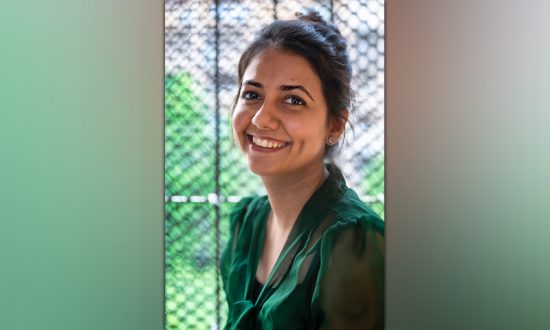Aisha Bharmal is the Head of Junior School at The Aditya Birla Integrated School, Mumbai. She has completed her Master’s degree in Counselling Psychology (S.N.D.T. University, Churchgate) and holds a Bachelor of Education degree in Special Education, specializing in Learning Disabilities (S.N.D.T. University, Juhu). Over the past 15 years, she has enjoyed learning from students, parents and colleagues, and intends to continue doing so. She is a firm believer in the power of words, the youth and kindness (not necessarily in that order). Her motto is – “Hold on to that inner child, no matter what!”
For any parent, seeking admission to a school for their child marks one of the most significant decisions to impact the child’s future. Various factors are taken into consideration, including but not limited to reputation of the institution, quality of education, proximity to one’s home, fee structure, scope for all round development among others.
When looking for the right school for a child with learning disabilities, some additional criteria come into play. Since the learning disability is identified/diagnosed in school going children, the child is already placed in a school. The decision then reaches a significant juncture: whether to continue in the same institution, or seek a more specialised set up, designed to meet specific learning needs.
While pondering the options, parents need to ask some vital questions, the answers to which will point them in the direction best suited for their child’s educational needs.
Some important questions to deliberate on while deciding on a school for your child with learning disabilities:
Is it really necessary?
Switching schools is a really big decision involving uprooting the child from an existing routine, set of friends and comfort zone. Does the current school offer a supplementary learning resource program? Would it help to bridge the gap in skills that the child is facing, while allowing them to remain in the so-called ‘mainstream’ school? Hence, unless the disability is so severe that the child is unable to cope with the academic expectations, or it is affecting his/her self-esteem, it would be wise to think through carefully before a potential upheaval of this nature.
What does my child need?
Parents know their child best. Is it a different and tailored curriculum, or simply a diverse and innovative methodology of teaching the same? Perhaps the problem lies in the sheer number of students in class, and a smaller student-teacher ratio is required for more individualised attention. Prioritise your child’s needs, then seek to find a school that will fulfil those needs. Prepare a checklist if you need to.
Does the school have specialists?
Once it has been established that a switch in schools is in order, one of the most important factors to take into account is whether the school offers various therapies and special programmes. These therapies include Remediation, Speech and Occupational Therapy and counselling services. If there are qualified professionals offering the various therapies, parents can rest assured their child with learning disabilities will have access to the support he/she needs to succeed at school.
What about other considerations, ones that go beyond academics? Is the emotional well-being of the child catered to, and given priority?
If academics is the sole driving force of the institution, children with learning disabilities are bound to feel pressurised to ‘match up’ with peers academically. Instead, it would be more beneficial to the child’s well-being to seek an institution that places greater emphasis on adjustment, happiness and mental as well as emotional health. The presence of co-curricular and extra-curricular activities would help to add value and teach vital skills like team building, turn taking, discipline and motor development.
What provisions are available for the child?
Are there accommodations in terms of how the child learns? Will the child be provided certain tools to help capitalise on their strengths? For example, can there be scope for more visual aids and graphic organisers to help break down the curriculum? Will extra time be provided to complete assignments/ tests? If the child struggles to read, is there scope for a reader to help them decode their tests? These considerations will become extremely important while choosing a suitable school.
To sum up, will an especially designed curriculum help?
Ultimately, the curriculum itself need not be completely restructured, rather adapted. Children with learning disabilities typically require strategies, a different teaching methodology, or quite simply, greater attention. Rather than a unique curriculum, it would then benefit the child to simply be equipped with techniques that encourage retention/ comprehension and recall?
If we are presented with a certain type of cuisine and struggle with the cutlery provided to eat it, would we consider not eating the cuisine altogether? Or perhaps seek assistance with the handling of the same. Perhaps a fork works better for some than chopsticks? Ultimately, it boils down to each child’s individual and unique set of needs, and where those needs are met substantially. It is a matter of doing your research and making a final decision in the best interest of your child.




